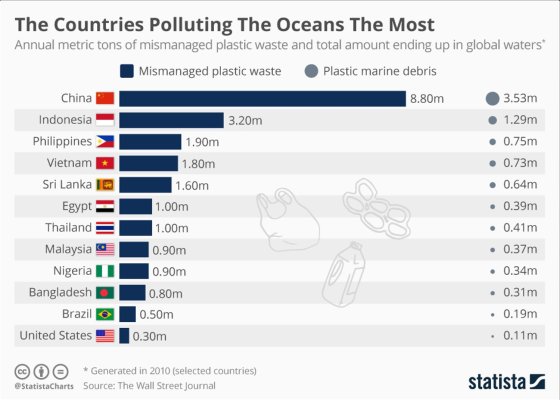I was misinformed
Recycles dryer sheets
- Joined
- Jun 14, 2015
- Messages
- 106
Hi Folks,
I found this story on The NY Times climate blog about recycling plastics rather informative
https://www.nytimes.com/2019/04/24/...424&nl=climate-fwd&nlid=6657946320190424&te=1
I found it interesting to learn which items are welcome in a recycling stream and which really mess things up.
I was interested in this quote
-
"We always encourage people to focus on Nos. 1, 2 and 5 because we have great markets for them in the U.S.,” said Brent Bell, vice president of recycling at Waste Management, a major garbage collection and recycling company.
-
I wonder if this really reflects the current situation? There seems to be a feeling that most of the stuff consumers put into the household recycle streams is ending up being buried or burned due to the current economics of the industry.
I found this story on The NY Times climate blog about recycling plastics rather informative
https://www.nytimes.com/2019/04/24/...424&nl=climate-fwd&nlid=6657946320190424&te=1
I found it interesting to learn which items are welcome in a recycling stream and which really mess things up.
I was interested in this quote
-
"We always encourage people to focus on Nos. 1, 2 and 5 because we have great markets for them in the U.S.,” said Brent Bell, vice president of recycling at Waste Management, a major garbage collection and recycling company.
-
I wonder if this really reflects the current situation? There seems to be a feeling that most of the stuff consumers put into the household recycle streams is ending up being buried or burned due to the current economics of the industry.

